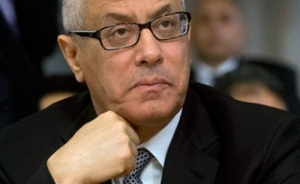
The interim parliament of Libya (General National Congress) removed him from power because of an incident with a foreign tanker in the port of Al-Sidra, in the east of Libya. This 234,000-barrel tanker called the “Morning Glory” has been recently illegally loaded with oil, usurped by militants of the Oil Facilities Guard who have controlled this and another two oil ports in Libya since the summer of 2013.
The groups, led by the former rebel commander I. Jhadran, want to tear the oil-rich region of Cyrenaica from the central government and obtain autonomous status. They blocked oil facilities under the pretext of fighting “the corruption of the authorities and for a fair distribution” of the national wealth. Libya’s production of black gold dropped dramatically because of this (it reached 1.5 million barrels under the previous regime), the country’s loss amounted to $9 billion. The government of A. Zeidan patiently negotiated with the militants, but they staked everything and decided to export oil of the state-owned company to foreign clients.
Officials threatened to bomb the tankers from the air if they were illegally filled. The tanker “Morning Glory” was stopped by government forces, but then it managed to escape from the port and went into international waters.
This fact was perceived as a challenge by many MPs and prompted a quick resignation of Prime Minister Zeidan. He left the country and went to one of the European countries, despite the fact that the public prosecutor’s office had forbidden him from leaving the country until the investigation of financial misconduct was finished.
The story with the tanker put an end to the year and a half career of the Premiere. In fact, this figure was doomed, because in the eye of many people, it was he who was responsible for the continuing violence in Libya after the collapse of the army and security structures in the autumn of 2011. The government of Zeidan failed to restore security and create a single power block to restore order.
Zeidan was manoeuvring all the time, travelled around the country, appealed for help to European countries, the U.S. The West sympathized, encouraged him, promised their technical and organizational help, assistance in admission of military into training courses, in the formation of new forces. He was a hostage of a contradictory situation; on the one hand, he was forced to rely on regional and tribal militia forces, and on the other hand, he had to restrict their free rein and put them under the control of military professionals. It was difficult to expect anything other in Libya, under the conditions of weakness of the state and the cult of weapons.
The interim parliament wanted to remove him more than once. The Islamists, who raised their heads after the overthrow of Gaddafi, were especially zealous. Parties and organizations of the political Islam were legalized and became more active in the country (including in the Parliament). A. Zeidan, a known human rights activist who had lived in exile in the West for three decades, was unacceptable for them.
The current events in Libya coincide with the third anniversary of the UN Security Council Resolution No. 1973 on the introduction of a “no-fly zone”, adopted on March 17, 2011. Two days later, it was unceremoniously turned into a “one-sided stick” for powerful air attacks and bombing by NATO that helped to overthrow the regime.
The disintegrated and exhausted country went backwards on many characteristics, and was plunged into a swamp of disorder, which allowed militants, trading in the main asset of the Libyan people, to act freely.
The illegally loaded foreign tanker left Libyan port, but it could have been worse if it had been bombed by angry Libyans, and then an environmental disaster could not have been avoided in the Mediterranean, and it would have reached Europe. The Minister of Defense was temporarily appointed in the place of the removed Zeidan.
According to recent reports, a brigade from the city of Misrata, one of the main strongholds of the anti-Gaddafi uprising, was sent to the east of Libya, to the ports occupied by armed dissenters. It is equipped with tanks, artillery and multiple rocket launcher systems.
Will they negotiate with the militants or try using force against them?
Yuri Zinin, Senior Researcher at MGIMO, exclusively for the New online magazine “Eastern Outlook”.
